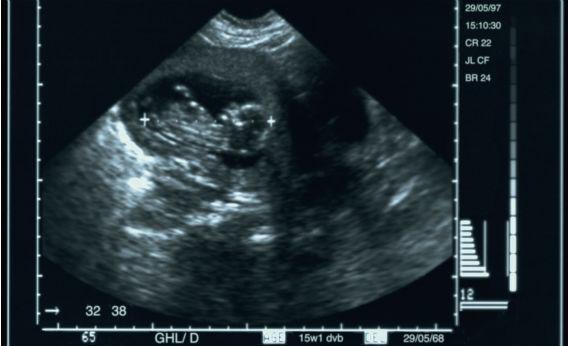In a country as awash in bad faith and empty political posturing as ours, it’s always fun to expose blatant hypocrisy. That’s why the story of the St. Thomas More Hospital lawsuit is ripping through the Internet. It’s a sad one, really: Lori Stodghill, seven months pregnant, was admitted to the hospital with a blocked artery that killed her and the two fetuses inside her. The plaintiff, her husband, Jeremy Stodghill, is claiming that because her doctor didn’t answer his pages, the twins died unnecessarily and could have been rescued through an emergency C-section, even if Lori’s life couldn’t be saved. The hospital’s defense, so far successful, is to claim that because the twins were fetuses and not people, this can’t legally be viewed as a wrongful-death situation.
Of course, the problem is that the hospital is run by Catholic Health Initiatives—Catholic, as in that religion whose leadership routinely claims that not only are fetuses people, but so are embryos, zygotes, and fertilized eggs. That claim is used to turn women into sacrificial lambs for the faith, denying them not just elective abortions but telling them that it’s not OK to terminate pregnancies where there’s no chance of producing a live baby. Women who go to Catholic hospitals in these situations have been denied procedures to save their fertility or even their lives. But, as this lawsuit shows, the passionate belief that anything post-fertilization is a “person” evaporates the second it stops being useful as a way to oppress women (and the second it starts possibly costing the Catholic hospital money).
So, cries of hypocrisy are justified and outrage understandable. Still, anyone who really thought that proponents of the fetus-as-person line ever really cared about “life” was being incredibly naive. The church romanticizes needless suffering through pregnancy for women, offering sainthood to women who die rather than take a doctor’s advice to stop getting pregnant. And if the church actually thought an embryo was the same thing as a person, it would demand free birth control for all in the interest of preventing murder. Instead it fights against contraception access.
Interestingly, this case reflects the more nuanced understanding that most people, especially pro-choice people, have regarding fetal development. While hardline religious anti-choicers use the “can it be used to oppress women?” measurement to determine if it’s a person or not in there, ordinary people tend to agree with the justices in Roe v. Wade that it starts off as not-a-person and gradually becomes one over months, gaining more moral consideration in the later months of pregnancy. This is why 88 percent of abortions are in the first 12 weeks, a percentage that would be even higher if women weren’t delayed by anti-choice laws and harassment from getting timelier abortions. Only 1.5 percent of abortions occur after 20 weeks, even though elective abortion is legal up to 24 weeks in much of the country.
Stodghill’s pregnancy was seven months along, and despite anti-choice propaganda to the contrary, women at that stage of pregnancy don’t suddenly wake up one day and decide to terminate. Most women, even super pro-choice women, feel much differently about a seven-month pregnancy than an eight-week pregnancy, even if the Catholic Church doesn’t seem to see any difference at all.
